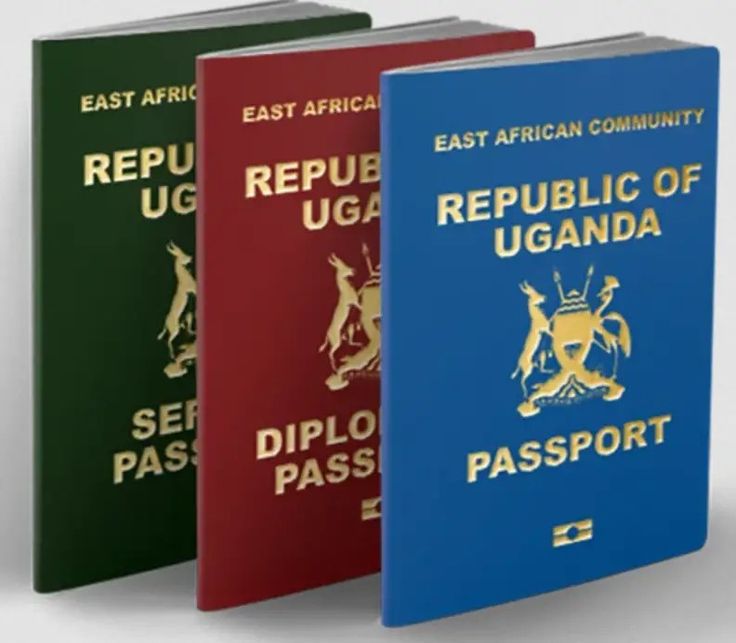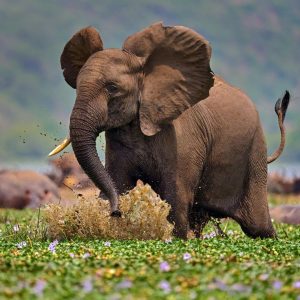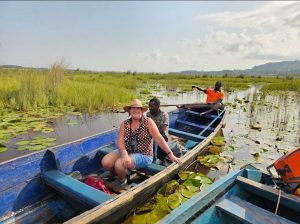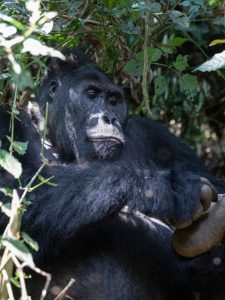Chimpanzee trekking in Kibale Forest National Park is one of Uganda’s most thrilling wildlife experiences. Located in the western part of the country, Kibale is often referred to as the “primate capital of the world”, home to the largest population of chimpanzees in East Africa. Trek Chimpanzees in Kibale
But a common question among travelers planning a trip to this incredible destination is: Can you trek chimpanzees in Kibale without a permit?
The simple and clear answer is: No, you cannot trek chimpanzees in Kibale without a chimpanzee tracking permit.
Let’s explore in detail why the permit is necessary, how to obtain it, what it covers, and what alternatives exist.
Why You Need a Chimpanzee Trekking Permit in Kibale
Kibale is a protected national park, and chimpanzee trekking is a highly regulated activity. The Uganda Wildlife Authority (UWA) has established strict rules that require every participant in chimpanzee trekking to hold a valid permit before entering the tracking zones. The reasons for this are both practical and conservation-focused. Trek Chimpanzees in Kibale
1. Chimpanzee Conservation and Protection
Chimpanzees are endangered, with their survival increasingly threatened by habitat loss and human interference. Limiting daily trekking through a permit system helps preserve their habitat, reduce human impact, and protect chimpanzee health.
Permits are a key part of conservation strategies. The funds raised from permit sales support:
- Anti-poaching patrols
- Habitat restoration
- Veterinary care for injured or sick chimpanzees
- Community-based conservation projects
Without these controls, the fragile ecosystem of Kibale could be quickly overwhelmed.
2. Health and Disease Prevention
Chimpanzees share about 98.7% of their DNA with humans, making them highly susceptible to human illnesses, including flu, colds, and respiratory infections. To reduce this risk:
- Visitors must keep a minimum distance (usually 7 meters).
- Group sizes and tracking frequency are limited.
- Proper briefings are mandatory before treks begin.
All of this is managed and enforced through the permit system, making unregulated or permit-less trekking both dangerous and unethical.
3. Visitor Safety and Trek Success
Chimpanzee trekking is not just a walk in the forest. It often involves:
- Navigating uneven terrain
- Following unpredictable troop movements
- Maintaining silence and discipline during observation
The permit fee includes the guidance of professional trackers and armed rangers who know the forest intimately. They ensure your trek is:
- Safe from potential wildlife threats
- Successful in locating chimpanzee groups
- Informative and respectful of nature
Without a permit, none of these safety or support measures are available.
What the Chimpanzee Trekking Permit Includes
When you purchase a permit for Kibale National Park, you’re paying for a complete and guided experience. The fee typically covers:
- Entrance to Kibale Forest National Park
- A trained UWA guide and ranger escort
- Briefing and orientation before the trek
- One-hour interaction with a chimpanzee troop once found
As of 2025–2026, the cost for a chimpanzee permit is:
| Visitor Type | Permit Cost (USD) |
|---|---|
| Foreign Non-Residents | $250 |
| Foreign Residents | $200 |
| East African Citizens | UGX 150,000 |
These prices may be subject to minor changes depending on UWA policies.
Can You Enter the Forest Without a Permit?
You may be allowed into certain parts of Kibale Forest for general nature walks, birding, or community visits. However, you will not be allowed to track or observe chimpanzees without a permit.
Park authorities have checkpoints and designated zones where chimpanzee tracking occurs. Attempting to join a chimpanzee trek without a valid permit is a violation of Uganda’s national park regulations and can result in:
- Denial of entry
- Heavy fines
- Legal consequences
Are There Cheaper Alternatives to Kibale?
Yes. While Kibale offers the most consistent and high-quality chimpanzee trekking experience, other locations in Uganda also offer permitted chimp trekking experiences, often at lower prices. These include:
- Kyambura Gorge : A scenic gorge offering short treks.
- Kalinzu Forest Reserve: A more budget-friendly, community-managed site.
- Budongo Forest : Offers chimpanzee tracking and a full-day habituation experience.
Even in these areas, a permit is still required, though the cost may be slightly lower than Kibale.
Why You Should Book Your Permit in Advance
Chimpanzee trekking is one of Uganda’s most sought-after activities, especially during the dry seasons of June to September and December to February. During these peak months, permits sell out quickly.
Booking early ensures:
- Availability on your preferred dates
- Time to plan the rest of your safari itinerary
- Peace of mind knowing your slot is secured
You can book your permit through:
- Registered local tour operators
- Directly with Uganda Wildlife Authority (UWA)
Permits are non-refundable unless under special circumstances, and rescheduling is limited.
Final Thoughts
Trekking chimpanzees in Kibale is not only possible—but one of the most rewarding wildlife experiences in East Africa. However, it is not something you can do without a permit. The rules are there to protect both the chimpanzees and you, the visitor.
By purchasing a permit, you are contributing directly to the protection of these intelligent primates and their natural habitat. It’s an ethical, safe, and unforgettable way to encounter one of our closest relatives in the wild.
If you’re planning a chimpanzee trekking safari in Uganda for 2025 or 2026, now is the time to start organizing your permits and accommodation. Reach out to a trusted operator or conservation travel expert to secure your spot and craft a meaningful, responsible journey through Uganda’s rich forests. Trek Chimpanzees in Kibale




